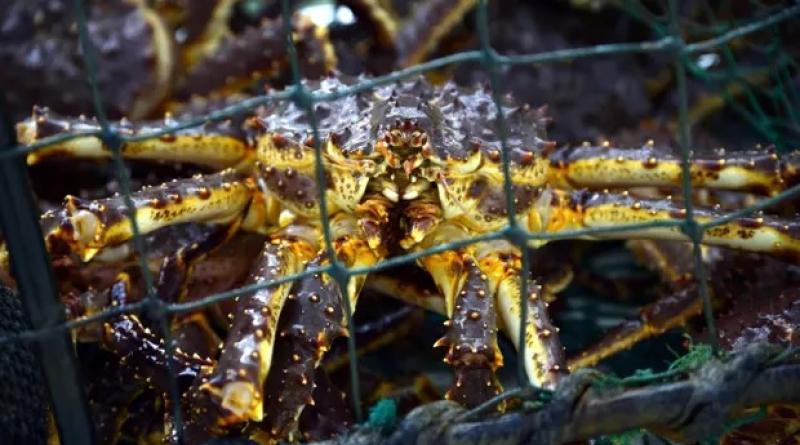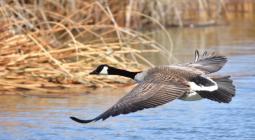King crabs invade UK waters threatening native species

North Yorkshire fishers found pots heavy not with brown crab but with prized invader
Invasive king crabs have made their way to British shores, sparking fears that local brown crab and scallop populations could be decimated.
This week, fishers in North Yorkshire found their pots heavy not with brown crab, but with the bright-red invader with long, spindly legs prized for their sweet flesh. London restaurants have already snapped up the haul, ready for weekend menus.
The fishers were shocked – bar rumours of one or two pulled up over the last couple of years, these crabs had never been seen off British shores.
The species, native to North America, was introduced to Russia in the 1960s by scientists who wanted to establish a new, lucrative fishery.
Thriving in cold seas, the crab population exploded, and they travelled to Norway, where they caused a fishing industry boom. And now they seem to have travelled all the way to Britain.
Fishers in the UK are tentatively excited, as many fisheries in Norway became rich off the invasive species, though environmentalists are alarmed about the potential impact on native species.
Shaun Henderson is a fish supplier who sells to more than 80 London restaurants. He said one of his fishers pulled up 250kg of king crabs.
He said: “My cousin is a fisherman. He’d been working on the boat for 15 or 20 years, and my dad was a fisherman and he was working on crabbing boats before that. None of them have ever caught a king crab before. It was quite funny to see them appear in our waters now.
“I’m excited about it but they seem like quite an invasive species, so I feel wary. They seem to be eating up the scallops at the bottom and they could outcompete brown crabs. I am a bit worried about our native seafood.”
His cousin was fishing in the North Sea off Bridlington when he pulled up the crabs.
Henderson said: “They destroyed quite a lot of the fishing in Norway but obviously made a lot of people in Norway a lot of money as well because fishermen were quite happy that they were catching these different, more expensive, lucrative fish.”
Will Murray, head chef at Fallow restaurant in St James’ Market, London, has bought up some of the haul. He said he planned to cook the crabs over charcoal and make a sauce with the meat from the head. The sauce will be poured over potatoes boulangère and the legs served alongside.
“We are excited, but a bit terrified, as they really are invaders and could kill off all our brown crabs,” Murray said.
“This could be the next grey squirrel, the next Japanese knotweed – but at least these are easy to cook and enjoyable to eat. This is some of the best seafood in the world, a real premium ingredient.”
However, despite their delicious taste, he said the crabs did not bode well for the rest of his menu.
The chef said it could be good for British fishers “if we react the right way and if we can export the commodity, but at the same time it’s bittersweet as it ultimately means that native populations are going to suffer.
“They breed in a layer on the seafloor and can grow to a massive size. The potters are already getting bigger pots to fit these bigger crabs in. You can see from reports from the fishermen that the population has just exploded.”
cover photo: The species is native to North America, but was introduced to Russia in the 1960s and then travelled to Norway. Photograph: Trond H Trosdahl/Rex/Shutterstock





